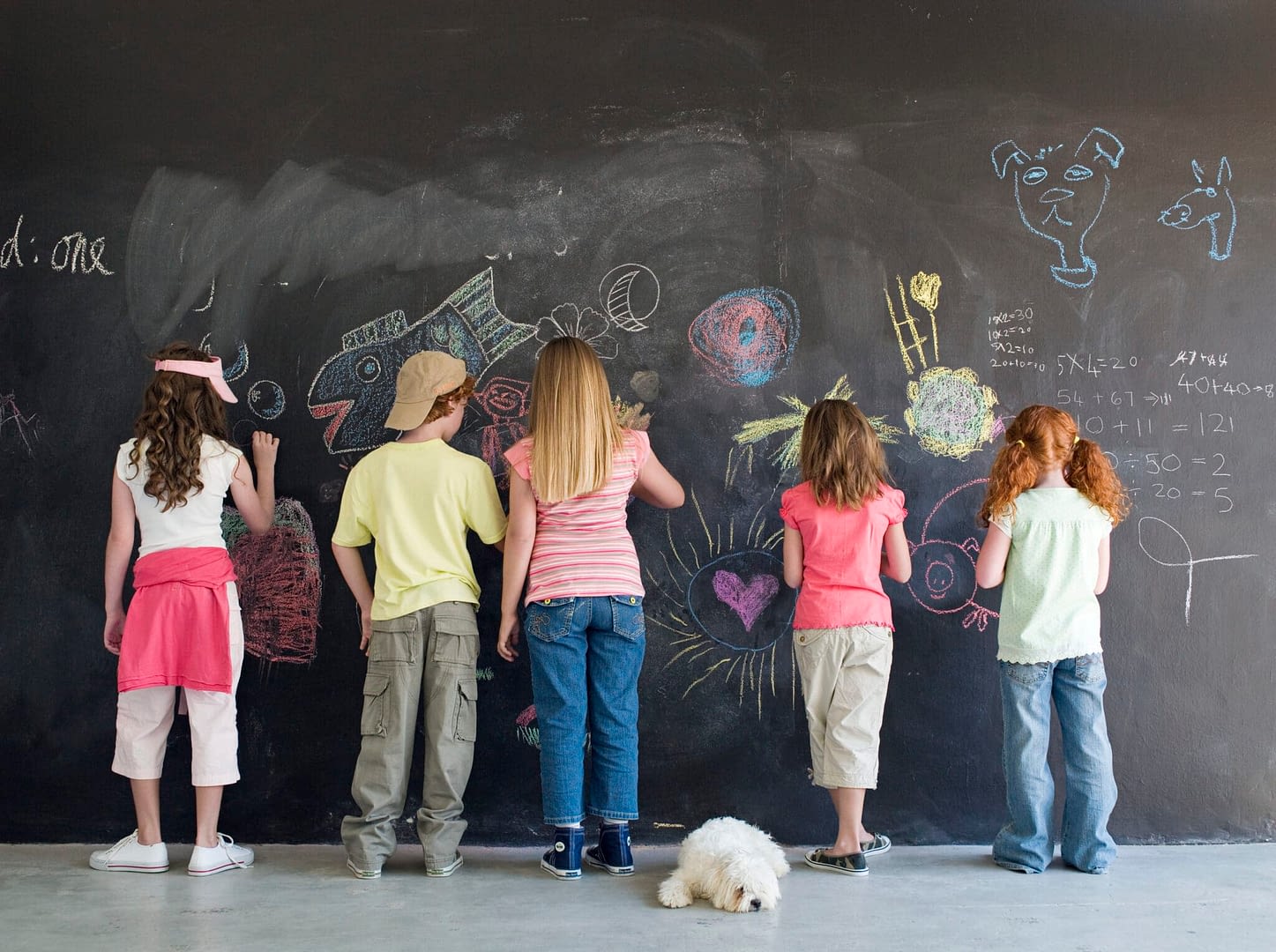We all have a place in God’s Big Story—we are His kids, and our identity is to be rooted in this truth. We need to be reminded of the core truths that we are known by God, loved by Jesus, and led by the Holy Spirit.
When we know this and choose to follow Jesus, we begin to live into our identities as children of God. What a wonder!
But where do we take the conversation with the kids we have the honor to serve? Where should we begin?
Start with the Big Picture of God’s Big Story in Your Kidmin Culture
Kids need a big-picture view of the Bible. We need to give them the ability and confidence to connect each story to the Big Story. Recently, I was teaching the story of Jesus Calling the Disciples in our elementary children’s church.
As I told the story and shared how we are each invited by Jesus to be His disciples, something clicked for one of our 4th grade boys. For the first time, he saw himself as a disciple of Jesus. He saw himself as part of God’s Big Story. He told me that he now looks at these stories differently because he sees himself in it.
How incredible is that? When have you had a kid have a moment of clarity that helped them see themselves with God’s story? What might shift as you teach this week to help open moments for kids to see the big picture?
We want our kids to be amazed and in awe of God while also being able to be filled with wonder as they gaze upon something beautiful.
A Story to Live By: The Formative Power of God’s Story
Children need a story to live by. A story that is the metanarrative that guides their living. We want children to know the meaning-making narrative of God’s Big Story.
In their book titled The Drama of Scripture, Craig Bartholomew and Michael Goheen provide major insights that help us understand the role and power of Scripture in the spiritual formation of our kids. They need to know the whole story of God, meet God in the story, and make God’s story their own.
To know the whole story of God, we need to give context around the stories we teach and repeat the stories to help kids understand the big picture. This means giving them time to explore.
How can you do this in your ministry? How might you change or continue how you teach?
Kids Meet God in His Story
The telling of God’s story involved the belief that God intends for our kids to meet Him in the story. God will be revealed and will show up! Kids get to know God when we, kids and adult together, celebrate the wonder of God’s ways. We don’t just want our kids to know things. We long for our kids to meet God and to know God. Where are you making space for your kids to meet with God?
Making God’s story their own story goes further than application. Kids need to be able to connect the story they just heard with the story of their own lives, but this does mean an application that we check off a list.
They need our help to see how things connect from back then to now. We can do this through wondering with them, asking questions, and providing time of reflection. We get to help them experience the Scriptures.
Wondering and questioning are sometimes used a synonym, but they really are two different ways we glean meaning. Wonder can be both action and a noun. We want our kids to do both. We want our kids to be amazed and in awe of God while also being able to be filled with wonder as they gaze upon something beautiful.
As I describe wonder in this way, does wondering come easily to you? Why or why not?

The Importance of Reflective Engagement in Your Kidmin Culture
This is all about the Holy Spirit being the teacher, and we get to lead kids to the story. It is about helping kids know that the stories in the Bible are true and filled with real people doing real things. We want to invite them to be active with the story.
Active means full engagement in the story, which involves reflection and space!
Our Own View of God Influences How We Teach
Wonder is curiosity, talking with God and leaving space for the Holy Spirit to move. When we do not make time for our kids to talk with God, it reflects on our priorities. Even more impactful is how we teach God’s Big Story.
Our own view of God influences and guides how we teach. As you read stories in Scripture, what picture are you painting of God or Jesus are you read? What tone of voice are you hearing? How has your view of God impacted how you teach?
Give Kids Opportunities to Be with God
How are you helping kids connect with God, respond to Him, and spend time with Him when they are in your care? In order to help kids connect with God and respond to Him, we must give them space: literal time and physical space. Too often, we try to fill every moment, and don’t allow space for pondering, questioning, being curious, or response.
Allow your kids space to wonder! Wonder helps us with the changes that happen around us, and when we do it together in community, we are now doing it with kids rather than to or for kids. It is now a shared experience that models what Jesus did with His disciples. What are some ways that you can make space for kids to be with God and respond to Him?
Worship response offers a path for kids to encounter God, commune with Him, and then respond to Him. God will meet with them. Our job is to set the table.
Worship Response in Your Kidmin Culture
After making the time and space for kids to meet with God, we also need to make time for them to respond to Him. Worship response offers a path for kids to encounter God, commune with Him, and then respond to Him. God will meet with them. Our job is to set the table.
You can do this in a variety of ways. You want to appeal to their senses and learning styles so consider having different options.
Here are some examples that I have used in our children’s ministry:
- Practice of Silence
- Journaling
- Breath Prayers
- Prayer Walks or Prayer Walls
- Prayer Stations
- Art and Drawing
- Music and Singing
- Declaring God’s Truths Aloud
- Listening to Scripture
- Dancing
- Call and Response
Affirm Identity in Christ
Remember how I mentioned the importance of repetition of stories? The same is truth for affirmations and declarations. We must give our kids language to know and affirm their identity in Christ and to help them live out who God created them to be.
Declaring the core truths that we are known by God, loved by Jesus, and led by the Holy Spirit are essential to help kids embody these truths.
How are you declaring God’s wonder over your kids? How might you start?
My favorite part of a Sunday morning is when we get to declare a blessing over our kids as they head into the rest of the week. At our church, we always remind our community that “Sunday is not the main event. Our lives are the actual event.” So I leave you with a blessing.
God created you to be uniquely you! Because God knows you, loves you, and leads you, your whole life can tell about God’s wonder. May you always remember that the praise that comes out of you because of the Holy Spirit tells others who God is. You are a wonder: a beloved child of God who reflects God to the world. May you celebrate His wonder always!
Wonder Ink’s 3-year, 52-week children’s ministry curriculum offers kids space to fully find their place in God’s Big Story. Children discover they are Known by God, Loved by Jesus, and Led by the Holy Spirit.





